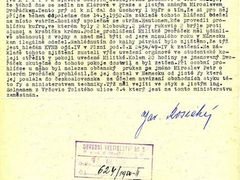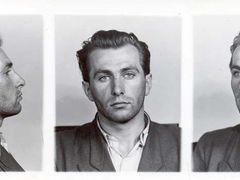Prague - Czech-born writer Milan Kundera yesterday talked to Czech journalists for the first time after many years of silence, in an effort to fight an allegation that he reported a western secret agent to the communist police in 1950.
In a telephone interview with the ČTK agency Kundera denied the allegation. He said the details, published by the Institute for the Study of Totalitarian Regimes (ÚSTR), were false.
"I'm completely shocked by something I didn't expect, something I didn't know about as recently as yesterday, something that never happened. I didn't know that person at all," Kundera told the agency, adding he has no idea why police records quote him as the informer.

Agent sent to lager
The allegations against Kundera were first aired by yesterday's issue of the weekly Respekt. The magazine reports that Kundera in 1950, while being a student at Prague's Academy of Performing Arts, tipped the police about Miroslav Dvořáček, a secret agent sent from Germany.
Dvořáček was arrested and sentenced to 22 years in communist lagers. At early stages of the trial he was even facing the death penalty.
The ÚSTR yesterday presented the media with new findings, including a detailed description of Dvořáček's activities in Czechoslovakia. Dvořáček had emigrated from Czechoslovakia to Germany in 1948 and later came back as a secret agent working for the West.
His task, assigned to him by his boss, General František Moravec, was to contact the then director of Chemapol, Mr Václavík, solicit him to provide information about the chemical industry and arrange a method of communication.
During the second attempt to contact Mr Václavík, Dvořáček made himself vulnerable when he stored his suitcase with his friend Iva Militká at the student hall Kolonka. Militká confided to her friend Miroslav Dlask, also a student, who in turn told Kundera.
The ÚSTR claims that Kundera immediately informed the police. When Dvořáček returned to the hall in the evening to pick up his bag, the police were already awaiting him.
Dvořáček suspected Militká
In the end Dvořáček did not receive the death penalty demanded by the prosecutor, but was sentenced to 22 years in jail. In addition to that, he was handed a fine worth CZK 10,000, stripped of his citizen's rights for 10 years and all his belongings were confiscated.
He served his term in several prisons, including one of the toughest lagers, Vojna near Příbram, where prisoners had to work under atrocious conditions. He was only released at the end of 1963, after almost 14 years.
Five years later Dvořáček emigrated to Sweden, where he is living today. He has always believed that the informer was his friend Militká.







